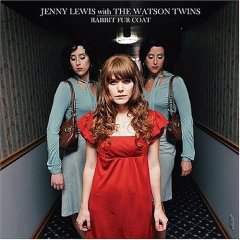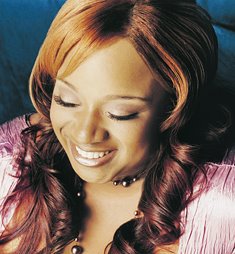by LaTonya Taylor
Israel Houghton and New Breed are known for eclectic, cross-cultural praise and worship music and high-energy performances. With 2002's Real, rife with funky 1970s influences, and 2004's Live From Another Level, the group has continued to break new ground with their musical combination of the fresh and the familiar. I spoke to Houghton just after the Live From Another Level DVD recording in Kansas City. There, he talked about his early influences, the New Breed movement, and how he came to see himself as a friend of God.
How did you become a worship leader?
Israel Houghton: While I was in college, I got connected with my church's worship team and they just asked me to start leading. I was 19, and
 I was pretty out of touch with what it took to be a worship leader. It wasn't until I really got alone with God and began to hear his sound and his signature and his affirmation that I began to discover that I was born for this, created for this, called to this. And I haven't looked back.
I was pretty out of touch with what it took to be a worship leader. It wasn't until I really got alone with God and began to hear his sound and his signature and his affirmation that I began to discover that I was born for this, created for this, called to this. And I haven't looked back.When you say you were created for this, that's not something you say lightly. The story of your birth is very significant, isn't it?
Houghton: Sure. I really should have been one of those abortion statistics you read about. My mother became pregnant with me when she was 17. My mother's white and my biological father's black. Her family wasn't supportive of their relationship and gave her the choice to have a back-alley abortion or to be disowned. I'm here because of the decision she made-and because of her conversion shortly after that.
So when I lead worship I'm crazy. I realize how fortunate I am to be called by God and to be protected, to be covered by him. I'm incredibly grateful.
Your mom later married, and you grew up a biracial child in a white family attending a Hispanic church. How did that shape you, culturally and musically?
Houghton: That certainly had a big effect on me, culturally, stylistically, musically. There were never any compartments for me growing up. I listened to the Beatles and I listened to Andrae Crouch and I listened to the Eagles and I listened to bluegrass music, and it was just all kind of one and the same. It was all music to me.
It wasn't until I started to really consider music as a career that things got confused. When I started talking with record labels, I encountered these segregated musical societies. Industry people would tell me, "You have to only do this kind of music." Basically what they were saying was, We only understand it this way, and you should only do it this way or nobody's going to buy you.
How did you respond to that?
Houghton: I told them, "The day is coming when the cool thing will be the most diverse thing." They just looked at me like, You're crazy. But I just held to that. It took somebody like Carlos Santana to show that you could work with musicians and influences from every walk of life and make it cool and sell millions of records while doing it.
I think of it this way. In the Lord's Prayer, we pray, "Let your will be done on earth as it is in heaven. What does it sound like in heaven? It's not segregated there. There's a sound that is just swirling and flowing and continually going. There are melodies and sounds and tones we've never heard. There are types of instruments that we have yet to experience and hear. So I'm saying let the sound of heaven resonate on the earth—and let me have something to do with it.
So, you had a strong sense of purpose, but things weren't really taking off. How did you cope with that?
Houghton: There are people who take off right away. But I realize that to whom much is given much is required. Back in 1989, 1990 I wasn't prepared. If God had done what he promised he was going to do then, it would have killed me!
I had to go through a time of preparation and becoming trustworthy in what God was going to call me to do. There have been many years of Lord, I just love you. If it's just me and you and this keyboard in the kitchen from now on, that's cool. And when I really, truly believed that, it was like then the Lord said, "Now let me do what I said I was going to do." I never doubted that, but I came to grips with the idea Lord, if it never comes, it's already come. Just the time I've spent with you has been worth it.
What did that process of becoming trustworthy look like in your life?
Houghton: I think the process of becoming trustworthy begins when God says, "Open your mouth and I'll fill it. Say what I'm telling you and I'll back you up on it." But that process continues as you get to the point where you say, "Lord, here's my 'Isaac.' Here's the knife. My dreams are yours." And just before you plunge he goes, "All right. All right. I got you now."
One of the songs on Live From Another Level says, "I Am a Friend of God." How did you come to see yourself that way?
Houghton: At New Breed's retreat two years ago, we were kind of defining our group mission. We had a moderator help us think that through, and I assumed it would be kind of straightforward. Here's why we exist. It's great. God bless you, everybody. Have a good day.
But God hijacked our whole time together. The moderator handed us a sheet listing promises of God and ways we're described in the Bible. He instructed us to circle the one that stood out the most to us. So there are all these statements—"I'm more than a conqueror through Christ." "Nothing can separate me from God," Romans 8, all this stuff. And then I see the statement, "I am a friend of God." Without even thinking of it, I circled that. So the moderator went around the room asking everyone what we'd circled. When it was my turn, before I could even say "I am a…" I just started weeping, uncontrollably.
Why did that affect you so much?
Houghton: I grew up in a fairly legalistic home. My parents loved God, and they did the very best they could with what they knew. They came from a very discipleship-oriented, fairly heavy-handed way of doing kingdom work. So I would have more easily said, "I am afraid of God" than "I am a friend of God." The view I had of God was dysfunctional, almost like he was looking for opportunities to punish me. That was more what I caught than what was taught.
But the more I said "I am a friend of God," the more that old, condemning view was purged from my life. I gained a healing sense of God saying, "I want to know you."
How has that realization affected the way you lead worship?
Houghton: It's so liberating. It sets me free just to worship with reckless abandon, complete belief that God enjoys me singing to him and approaching him with reverence and fear.
I often hear that so-and-so is the queen of gospel and so-and-so is the prince of praise, and so on. Somebody asked how I'd categorize myself, and I said, "In terms of royalty? Hmm. I'm the court jester of worship." Why? Because the court jester entertains the king.
I get to a point in leading worship where I tend to just kind of check out and focus my attention on the King. My desire is that the King eventually says, "Come up here and sit with me now. You've caused me to smile. You've exalted me. Now just come and hang." I love that, so that's where I'm at. I'm the court jester of worship.
You've said that New Breed is more than a musical group, but a movement and a way of life. What does that mean?
Houghton: I didn't want it to be "Israel Houghton Ministries." I wanted to be a part of something greater than myself. So we live by that idea: the thing of which I am a part is greater than the part I play. It's a big picture-focused movement, beyond the music. It's about God connecting our hearts to walk together.
Ultimately, it really is about the GPS of your heart. Does your heart beat for your local region or your comfort zone of church? Or does your heart beat for the nations who have yet to bow their knees? To me, getting around people who cry out for the nations of the world is what I live for. And that's what New Breed is all about.
It's been almost ten years since New Breed started. What accomplishments have been most meaningful to you?
Houghton: I am as crazy, passionately stupid, ridiculously in love with Jesus now as I was when I first started this thing. And as long as my knees can handle it, I'll be the same way.
I can also say that I've been a friend to my friends for a long time, and I have vital relationships 10, 15, 20 years long. The passion for the presence of God has not left me, and what we set out to do, to be deliberately cross-cultural is standing today and it's ushering in a fresh sound and, fresh movement of the Spirit of God.

